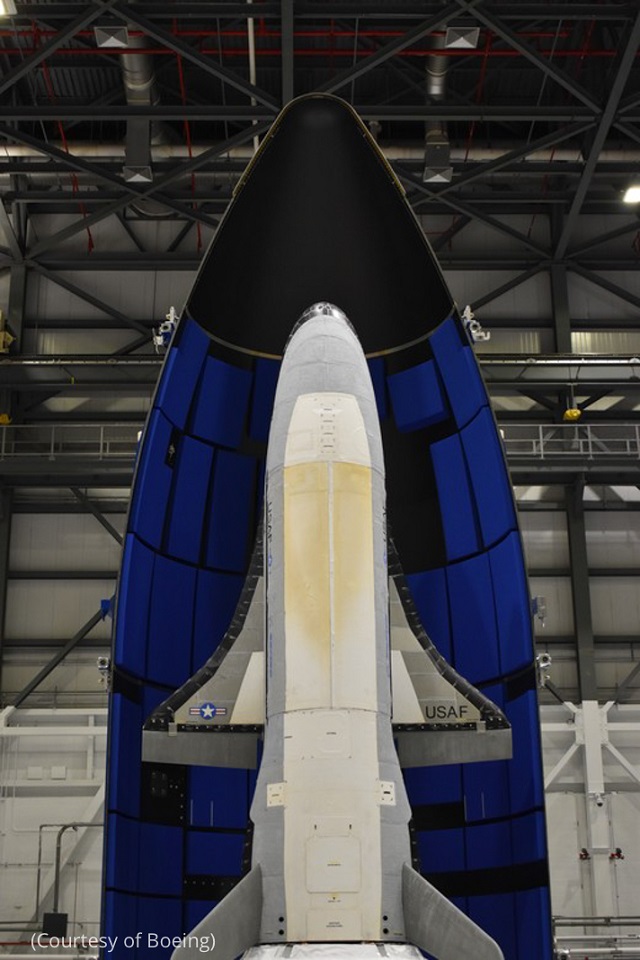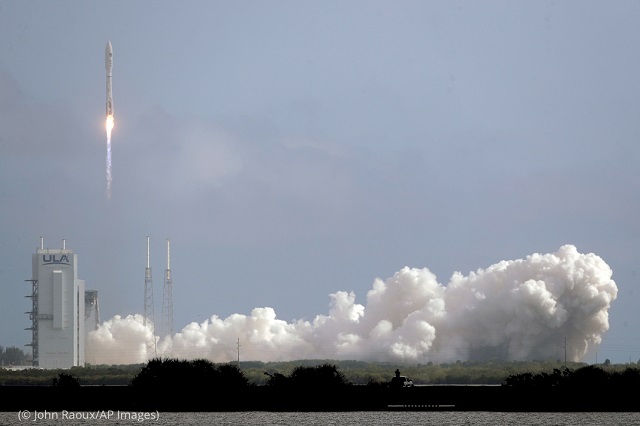The X-37B orbital test vehicle has successfully launched from Cape Canaveral, Florida, for its sixth mission in space.
Launched May 17, the X-37B is carrying a FalconSat-8 satellite that will conduct experiments while in orbit, including some on the effects of radiation on seeds for growing food, according to the U.S. Space Force.

The X-37B orbital test vehicle is a solar-powered plane that’s flown by remote control. (Courtesy of Boeing)
“The X-37B continues to break barriers in advancing reusable space vehicle technologies and is a significant investment in advancing future space capabilities,” said the U.S. Air Force’s chief of staff, General David Goldfein.
The X-37B is a remote-controlled, solar-powered space plane, according to information from the U.S. Air Force and the Associated Press. It is 9 meters long.
Students at the U.S. Air Force Academy designed and built the FalconSat-8 satellite, which will conduct experiments in collaboration with the Naval Research Laboratory and NASA.
The X-37B’s mission is a collaboration between the U.S. Air Force and the U.S. Space Force. On its last mission, the X-37B spent more than two years in space.
“The X-37B team continues to exemplify the kind of lean, agile and forward-leaning technology development we need as a nation in the space domain,” said the U.S. Space Force’s chief of space operations, General John Raymond. “Each launch represents a significant milestone and advancement.”

A United Launch Alliance Atlas V rocket, carrying the X-37B orbital test vehicle, lifts off from Cape Canaveral, Florida, May 17. (© John Raoux/AP Images)
Banner image: The X-37B orbital test vehicle and a scientific research satellite launches at Cape Canaveral, Florida, May 17. (Courtesy of Jeff Spotts/United Launch Alliance)







COMMENTS0
LEAVE A COMMENT
TOP